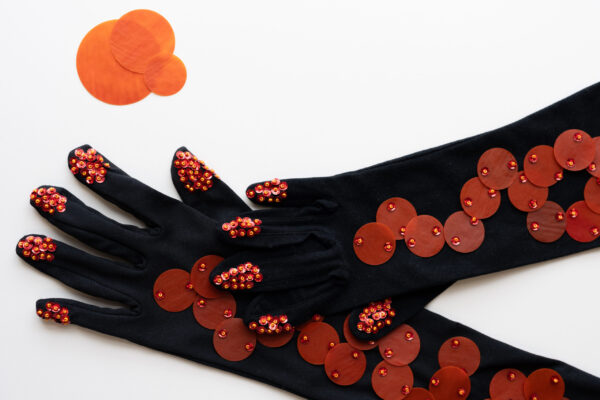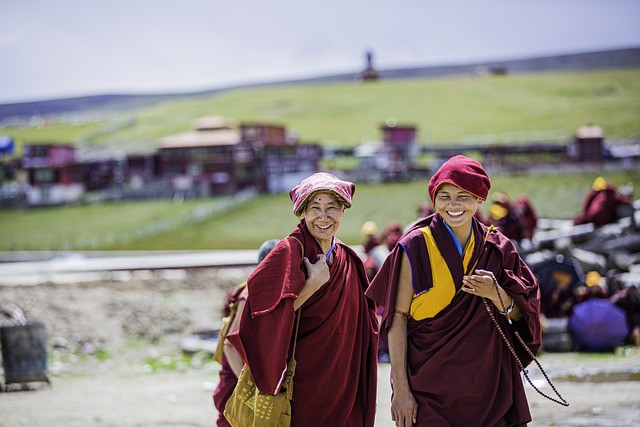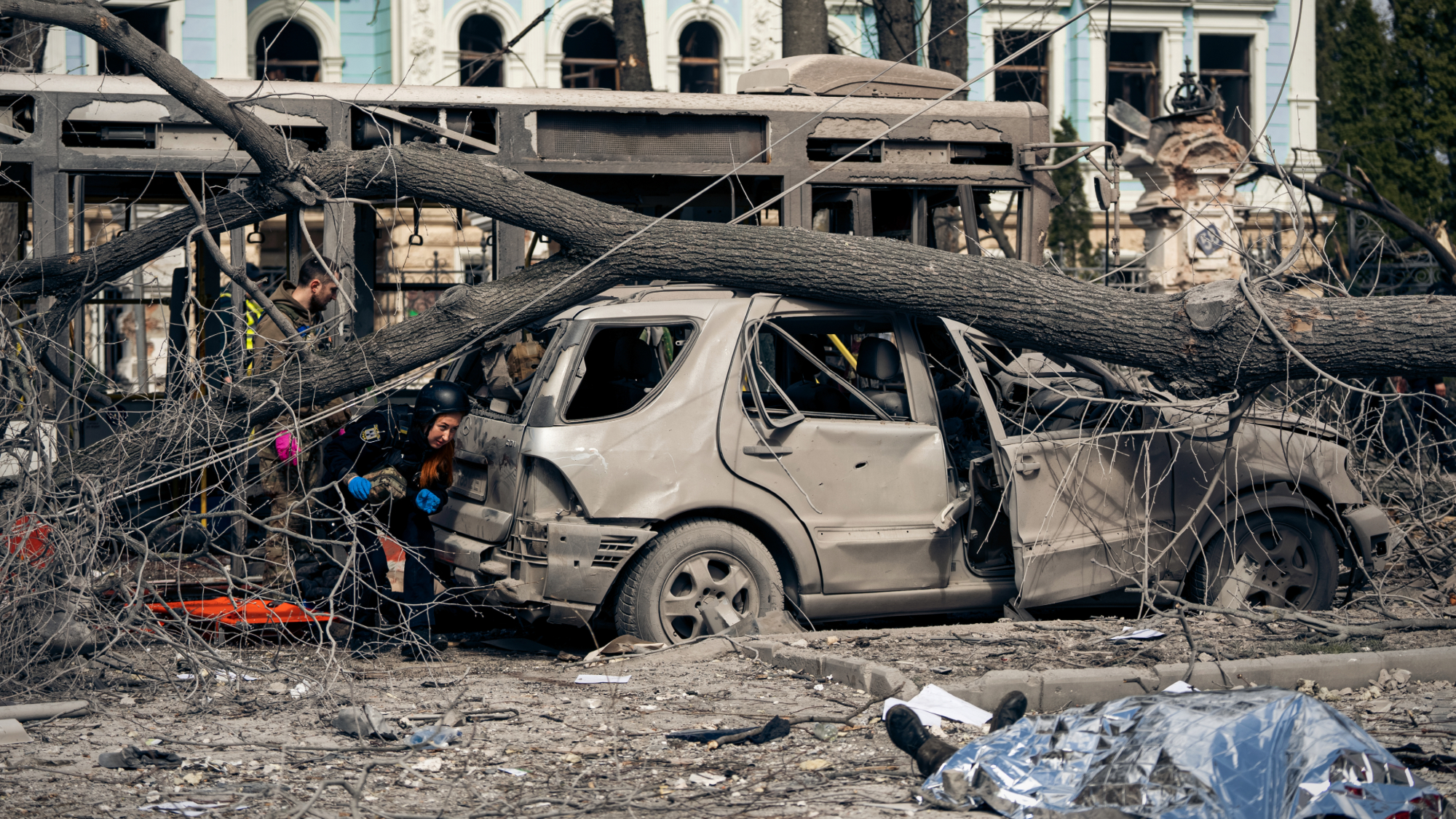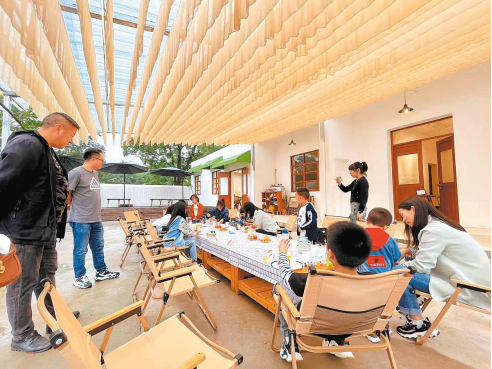The UN's decision to award Saudi Arabia the presidency of this year's Commission on the Status of Women (CSW69) sparked intense criticism and accusations of hypocrisy, despite recent moves to improve rights for women in the deeply conservative country.
Driven by the modernising reforms of Crown Prince Mohammed bin Salman, Saudi Arabia has been inching up the ranks of the World Economic Forum's Global Gender Index, now coming 126th out of 146 countries in the 2024 report.
Yet the country's appointment as chair of CSW69, which took place in New York last month, "raises serious concerns", said Global Policy Journal. "Despite its attempts to project a progressive image through its Vision 2030 agenda, Saudi Arabia maintains an abysmal human rights record – particularly regarding women's rights."
So what has changed for women in Saudi Arabia in recent years? And what restrictions do they still face?
Driving and travel
In 2018, Saudi women were allowed to drive in the kingdom for the first time. Restrictions on travelling abroad were lightened a year later, allowing women over the age of 21 to apply for a passport and leave the kingdom without the permission of a male guardian. And, since 2021, women have been permitted to go to Mecca to perform Hajj without a male relative, as long as they are travelling with other women. Human-rights groups have highlighted instances of targeted travel restrictions, though, with Amnesty International claiming female activists have been subject to travel bans, both official and unofficial, lasting several years.Guardianship
The concept of guardianship, or wilaya, is "deeply rooted" in Saudi life, according to Equality Now. Traditionally, every woman has a wali, a male guardian who makes decisions on her behalf – typically her father, and then her husband after marriage, although guardians can be brothers, sons, uncles or even male judges. This has meant that women were essentially treated as minors, in legal terms, for their entire lives. Since 2019, however, the system has undergone some reform. Women aged over 21 no longer need their guardian's approval to access healthcare, education and state services, take up a job or make their own medical decisions about pregnancy and birth. While the codification of the Personal Status Law (PSL) in 2022 introduced "significant reforms", said LSE Blogs, "the guardian's consent remained required in multiple areas", including a woman's right to get married, get divorced or leave certain institutions, such as a prison or a domestic-abuse shelter. In February, Saudi Arabia's Official Gazette published additional details on the implementation of the law. These address the matter of Adhl (unjust marital prevention), and grant women the right to seek the transfer of guardianship to someone more eligible if a male guardian is negligent or unjust. But even exercising these new limited freedoms can be difficult in practice for many women. "A male guardian’s accusation of disobedience or 'absconding' can lead to a woman being detained in a so-called care home," said human-rights group ALQST. These institutions are intended to "reform" girls and young women who are deemed "delinquent", and release is conditional on the approval of a guardian or male relative.Marriage
Saudi Arabia has made some efforts to reform marriage-related laws but the influence of guardianship and traditional customs remains significant. Touted as a "progressive" change, the PSL, which was introduced on International Women's Day in 2022, actually codifies many traditional Islamic rules, including those on marriage and divorce, into law. While this improves equal treatment by preventing judges from using their own individual interpretation of Islamic principles to make rulings on family matters, it nevertheless "enshrined discrimination against women rights into the legal code", said Rothna Begum of Human Rights Watch. So now, women legally need the permission of a male guardian to marry or divorce, and married women are required by law to obey their husband "in a reasonable manner" or risk losing their right to financial support. Neither husband nor wife can abstain from sex without their spouse's consent. On the plus side, the law did set the minimum age at which women can marry at 18 (although courts can authorise the marriage of a younger woman if she is deemed mature enough to give consent), and judges can allow a woman to marry a man of their own choice if their guardian’s objection is "unreasonable". Husbands are not allowed to use the triple talaq to declare instant divorce but they can still unilaterally divorce their wife, while a wife who wants to end a marriage must petition a court "on specifically limited grounds".Custody and guardianship of children
Historically, the Saudi approach to child custody after divorce has been inconsistent. Under Islamic rules, the father remains the legal guardian but the mother retains custody until a boy is seven or a girl reaches puberty. However, judges tended to interpret the rules very differently, resulting in unpredictable decisions that were often more unfavourable to mothers or even, sometimes, harmful for the children. The PSL has ironed out those inconsistencies. It "codifies the classical Islamic rule on parental responsibility, designating the father as the guardian of the child" but giving mothers an assumed right to primary custody, academics Beata Polok and Zubair Abbasi wrote for the LSE Religion and Global Society newsletter. Children of either sex can stay with the custodial parent until they are 15 and can then choose which parent to live with, according to the Oxford Human Rights Hub. The PSL also overrides a judicial tradition which tended to remove children from their mother's custody if she remarried – the new legislation allows a woman to retain custody if her remarriage is not deemed to be against the child's interest, according to the Oxford Human Rights Hub. Mothers with primary custody of a child can now apply for a passport for their child or for a grant to take them out of the country for up to 90 days, without needing consent from a male guardian.Education
Women's education has undergone significant transformation over the past few decades, influenced both by government policies and shifting cultural norms. Education is a key part of Vision 2030, and the literacy rate for Saudi women aged 15-24 is close to 100%, compared to 57% in 1992, according to Unesco figures reported by Pakistani newspaper Dawn. Female students account for just over half of those enrolled at Saudi universities, and Saudi women have "forged ahead in all areas of academia, from administration and teaching to research", said Arab News. Gender segregation is enforced throughout the education system, although a handful of universities offer co-educational courses where male and female students share classrooms, although living facilities remain strictly single-sex.Employment
In 2018, women made up only 15% of Saudi Arabia’s total labour force. By 2024 strategy, that number had reached 34.5%, propelling the kingdom beyond the targets set in Vision 2030, said Arab News. The "remarkable increase" in female economic activity has been made possible by "proactive government policies", together with rising educational achievement and increased demand for women workers, said the Atlantic Council. Changes since 2017 include allowing women to apply for jobs and start their own businesses without a guardian's consent – and the 2018 decision to allow women to drive has opened up new opportunities. The 2018 Anti-Harassment Law was another "major milestone", noted UK-based Middle Eastern news site Amwaj.media. Workplace harassment can now result in significant penalties, including prison sentences. However, the female workforce remains "largely concentrated in caregiving and education", and gender segregation limits women's access to leadership roles and networking opportunities. "Efforts have largely centred on boosting workforce numbers, rather than tackling the deeper, systemic inequalities that persist for females in the Kingdom."Social life and clothing
Life for Saudi women has "rapidly" transformed and the country has made "historic strides" in terms of female access, without a male escort, to public spaces, including concerts, cinemas and sporting events, ABC News said. The black abaya (a full-length loose fitting robe) and niqab (full-face veil) were once emblematic of the restrictions placed on Saudi Arabian women, and those who strayed from this dress code were subject to harassment from religious police. However, Crown Prince bin Salman has repeatedly emphasised that the abaya and head coverings are not mandatory. In a 2018 interview with US news programme "60 Minutes", he said that Saudi men and women alike should wear "decent, respectful clothing" in accordance with cultural and religious norms, but that, beyond that, clothing choice was "entirely left for women". That perspective is reflected in a public decency law introduced in 2019, which requires "modest" dress for both sexes but only specifies “loose clothing” that covers both elbows and ankles. The vast majority of Saudi women continue to wear the abaya and a head covering. Patterns and colours are becoming a more common sight, as are open abayas over the top of Western-style clothing. Footwear choices are "generally unrestricted", said Fact Crescendo, and "make-up is widely accepted, with an emphasis on subtle, sophisticated looks". There is, however, "no verifiable evidence" from official Saudi government sources, news outlets, or bin Salman himself about a further relaxation of clothing rules for women, despite claims that "have circulated about a new announcement in 2025".Personal Data
Technology has historically been used in Saudi Arabia to monitor and control women's movements, according to the non-profit European Centre for Democracy and Human Rights. In 2019, it highlighted how the government's Absher app, which citizens need to use for renewing passports and paying traffic tickets, has a travel log, viewable by male guardians who can then give or deny permission remotely for their female "charges" to travel abroad or obtain a passport. Since 2021, all Saudi citizens have had control over their personal data, in theory empowering women to manage their information and make informed decisions about its use. But Freedom House said internet users of both sexes continue to face "extensive" censorship and surveillance, and women's rights activists continue to be jailed for online posts.Popular News




Current News
Manufacturing

Collaboratively administrate empowered markets via plug-and-play networks. Dynamically procrastinate B2C users after installed base benefits. Dramatically visualize customer directed convergence without
Collaboratively administrate empowered markets via plug-and-play networks. Dynamically procrastinate B2C users after installed base benefits. Dramatically visualize customer directed convergence without revolutionary ROI.





About Us
Tech Photos






















